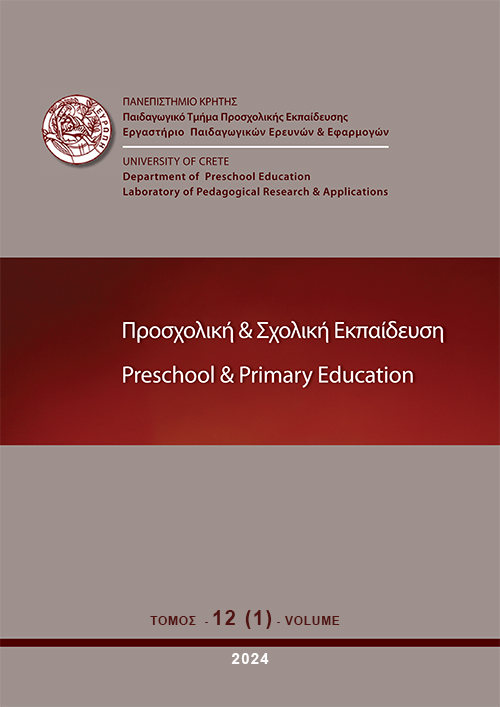The exploration of the educational issues faced in a preschool classroom through action research.

Abstract
This article presents the contribution of educational action research to the effective management of a school classroom. More specifically, the paper presents the process and results of an action research that was carried out in a full-day classroom of a public kindergarten in Rethimno, Greece (N=14). The educational research was conducted by the classroom teacher (henceforth teacher-researcher) and a facilitator, who was an academic researcher of the University of Crete. Together, they met regularly in bi-weekly scheduled meetings to discuss issues and set new goals. They decided that data would be collected through the teacher’s diary and the use of a sociogram. The teacher-researcher was concerned about several issues in her classroom. Initially, she identified the source of concern in her classroom management as being mostly in the language weaknesses of the students with immigrant or refugee backgrounds (N=7). There were several students that could not speak Greek at all or used only basic vocabulary, so the teacher-researcher felt that she could not communicate efficiently with them. Apart from that, there were Greek students who could not follow classroom rules, and often had tantrums. Data collection, both through systematic observation by the teacher-researcher, and through the analysis of the first sociogram, differentiated the sources of concern. The sociogram revealed some useful elements, such as the existence of two different groups - the boys and the girls. In addition, there was one popular boy and two girls, while at the same time there were some neglected students. Gradually, the teacher-researcher’s interest shifted towards the enrichment of the children's social relationships and the formation of the appropriate pedagogical climate in the classroom, so as to enrich the children's social interactions on the one hand, and to support the development of their social and communication skills on the other. To achieve this, the teacher-researcher implemented several pedagogical techniques. For example, she supported students in working in small groups, differentiated by age, sex and origin. Additionally, children were involved in art-based activities such as role play, rhythm and music activities, etc., in an effort to build bridges and find common languages among students. Activities were enhanced by a puppet which prepared a playful ‘mission’ for students every day. Students were pleased with the presence of the puppet, and they looked forward to completing its missions. Together with the facilitator, the teacher-researcher discussed issues that came up until the end of the school year. The teacher-researcher’s diary indicated that gradually she felt more relieved about her students’ achievements. At the end of the school year a second sociogram was delivered which revealed a significant enrichment of children's social interactions. It seems that the use of new learning techniques led to a positive climate in the classroom, while at the same time a safe social environment was formed, allowing all students and especially the non-native students to express themselves freely and improve their social and communication skills.
Article Details
- How to Cite
-
Alexakis, D., & Nikoloudaki, E. (2024). The exploration of the educational issues faced in a preschool classroom through action research. Preschool and Primary Education, 12(1), 66–86. https://doi.org/10.12681/ppej.35342
- Section
- Articles

This work is licensed under a Creative Commons Attribution-NonCommercial-ShareAlike 4.0 International License.
Authors who publish with this journal agree to the following terms:
- Authors retain copyright and grant the journal right of first publication with the work simultaneously licensed under a Creative Commons Attribution Non-Commercial License that allows others to share the work with an acknowledgement of the work's authorship and initial publication in this journal.
- Authors are able to enter into separate, additional contractual arrangements for the non-exclusive distribution of the journal's published version of the work (e.g. post it to an institutional repository or publish it in a book), with an acknowledgement of its initial publication in this journal.
- Authors are permitted and encouraged to post their work online (preferably in institutional repositories or on their website) prior to and during the submission process, as it can lead to productive exchanges, as well as earlier and greater citation of published work (See The Effect of Open Access).


